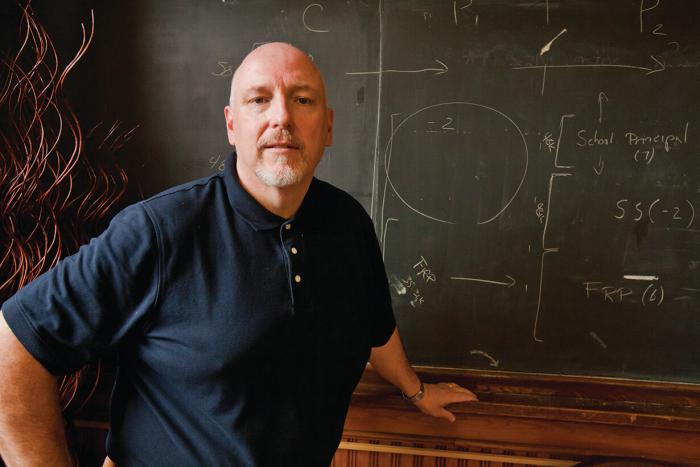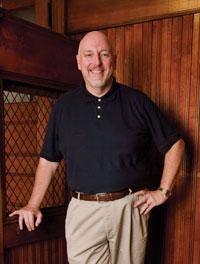We first heard about William Joslyn from teacher Toni Giarnese. She said that Joslyn, an administrator at Torrington Public Schools in Connecticut, never forgot what it’s like to be a teacher. So we decided to find out more.
Joslyn is currently director of human resources for Torrington, a district serving about 4,600 students. But he began his career in 1979 as an elementary school teacher. He’s since served as an assistant principal, principal and director of special education—among other jobs.

Why did you become an educator?
From a young age, I was drawn to teaching and remember “teaching” neighborhood children. I have memories of long summer days of drawing diagrams in the dirt, “experimenting” with household items, observing insects and collecting specimens. There was always a special thrill in sparking an interest in others and watching them run with it. When I finally got the chance to actually teach, there was no thrill quite like when students were interested, engaged and learning in my classroom.
What is the single largest challenge in your district?
The largest challenge is and always has been meeting the needs of all students, whose needs sometimes are basic human requirements. Full stomachs, a sense of security and a sense that they are loved are three basics that my staff and I would never turn our backs on.
How would you describe your district’s diversity efforts?
When I arrived, I had so much to learn. We used to laugh about ours being the Liberty Island of schools. Give us your tired, your poor, your huddled masses. ... Will you host a district bilingual class? Sure. Will you host a classroom to transition emotionally challenged students? Sure. Will you host a district autistic program? Why not. The staff thought I was crazy but never said no.
If money were no object, what would be the three most important tools you’d need to do your job?
Teachers, teachers, teachers.
Why would parents want to send their children to your district’s schools?
Parents see [school personnel] demonstrating that we care about each and every child. Sometimes it is just being in front of the school at the beginning and end of each day and chatting personally about their children. It might be a staff member drying the tears of a child. It might be a phone call to a parent during dinnertime just to say hi and say that their child had a great day at school. It is not about one thing you do, it is about everything you do.
How do you help students and staff be more understanding and respectful of differences?
Modeling tolerance is key for school leaders. If we don’t walk the walk, we can’t expect others to.

How do you ensure that each child in your school is safe from bullying and harassment?
Listen and react. We don’t tolerate bullying. My staff, from the custodian to the bus drivers to the principal, all were charged to be the eyes and ears and react swiftly and clearly to any act that would send a message that you are not safe here. We rarely missed the opportunity to demonstrate our distain for such behavior. The school culture over time would not tolerate children bullying or harassing one another. The students became our allies because they all knew the importance of treating one another with respect and dignity.
What book influenced your vision for the schools you’ve helped run?
I’ll date myself, but I have always been a big fan of William Glasser. When I read his book Reality Therapy it was a life changer. … If we want people to be motivated, we have to learn what drives them and make sure the outcome we desire meets their needs. Thanks Dr. Glasser!
What’s on your iPod?
Talk about diversity. If I hit shuffle, you will hear Johnny Cash followed by Pink Floyd, followed by Porcupine Tree followed by the Temptations—and you might even hear a little Snoop Dog.
What’s the biggest compliment someone can pay you?
This is it. Having the opportunity to share my beliefs about children and education. Again, it’s those simple words that are so often forgotten— “Thank you, Bill, you make a difference”— that gets me every time.
"I always believed it was my role to remove obstacles to allow very capable people to do what they do best," says William Joslyn.
Know an excellent administrator, librarian or counselor we should interview?
Tell us all about them.